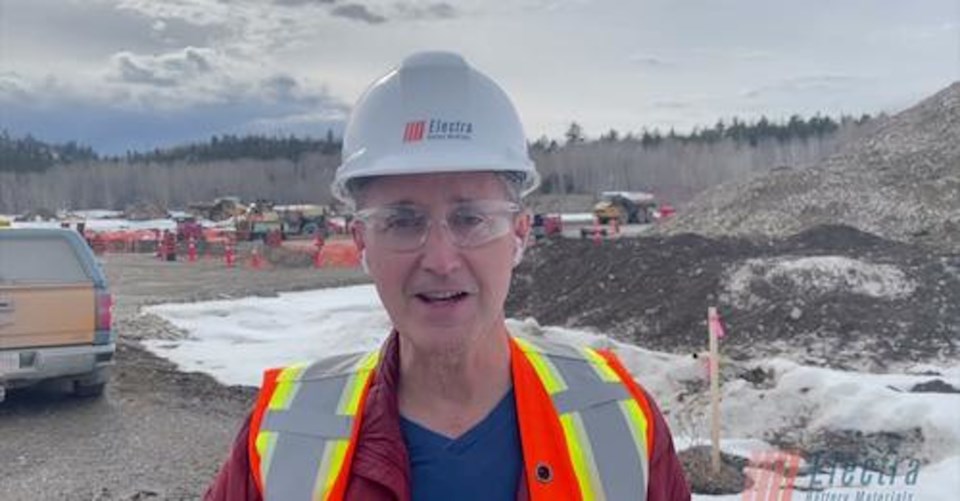Temiskaming refinery owners Electra Battery Materials have secured an international buyer for the valuable metals to be recovered from the battery recycling business the company intends to launch next year in northeastern Ontario.
Electra announced an off-take agreement with international miner Glencore AG for all the nickel and cobalt material pulled from recycling spent batteries at its proposed facility outside the town of Cobalt. The contract runs from 2023 to 2024.
Toronto-based Electra is setting up a battery recycling plant as part of its grander strategy to establish a battery materials industry park, geared to serve the rapidly expanding North American electric vehicle sector. The park will be the first of its kind on the continent.
The metals recovered from used lithium-ion batteries are known as 'black mass,' a powder containing material such as cobalt, nickel, copper, lithium, manganese, aluminum and graphite.
Under the agreement, Glencore will purchase all of the recycled nickel and cobalt for the first 18 months of operation.
The company said other off-take contracts are in the works. Discussions are taking place with other parties to sell off the recovered lithium, copper and graphite.
Sign up for the Sudbury Mining Solutions weekly newsletter here.
The battery recycling is the second of a four-part development strategy for the battery materials park. The other phases involve processing cobalt, nickel and securing a development partner to build a battery cathode precursor manufacturing plant to be co-located in the same industrial park.
Construction is now underway for a solvent extraction plant building for the cobalt processing, located next to the existing refinery. Commissioning of the cobalt circuit takes place in December.
A demonstration recycling plant starts this year using existing equipment at the site. A more dedicated facility will be commissioned in 2023 when the Glencore streaming deal will kick in.
To source the old batteries, Electra intends to partner with third parties who collect them and shred the battery cell electrodes into black mass.
Electra states they've established relationships with more than 30 black mass producers and expect to narrow that list down to four providers to feed to its refinery.
Want to read more stories about business in the North? Subscribe to our newsletter.
In a YouTube video posted April 6, Electra CEO Trent Mell said the Glencore deal helps de-risk their business plan as they seek to expand on the site and integrate all these processing facilities into one integrated complex.
With the expectation that the black mass market will grow, Electra said its recycling business will be done in a "staged, modular fashion," targeting black mass material from consumer electronics before turning to battery scrap material from North American electric vehicle battery cell manufacturers.
More modules will be added to the Temiskaming site over the next decade, the company said.
The first recycling module is expected to produce more than 2,000 tonnes a year of mixed hydroxide precipitate from approximately 4,500 tonnes of black mass material, equivalent to recycling batteries from more than 20,000 full electric vehicles per year, or 80,000 plug-in hybrid electric vehicles.
Electra is also seeking a Nasdaq listing over the next two to three weeks, subject to regulatory approvals.
"As you go from a startup to cash flow, you want exposure to bigger markets and bigger institutional investors, so that's what the Nasdaq (listing) is intended to achieve," said Mell in the YouTube video.




